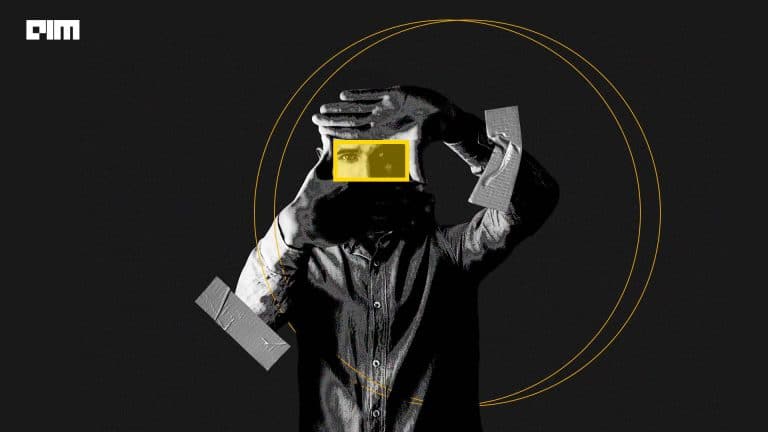During an episode of the Logan Bartlett Show, Sam Altman recalled how calculators were perceived in his maths classes. “We never got to use calculators,” he said, adding that conversely you had to be proficient with calculators in real-life to excel later.
“If OpenAI researchers never got to use calculators, OpenAI wouldn’t have happened,” he said, explaining that we now need to teach people how to use AI because it’s going to be an important part of what we do in the future.
The importance of learning maths has been emphasised from our school days. It’s a crucial requirement in order to excel as an engineer. Further, with computer science becoming so mainstream, society has started to separate those who are good at maths from those who are not.
Now AI is bringing down this wall for the better. With the advent of tools such as ChatGPT and Copilot, everyone is increasingly becoming a developer without needing to learn maths, democratising access to fields that once required deep knowledge of the subject.
Some say mathematics and AI are two branches of the same tree. Others believe that mathematics forms the backbone of AI. But ever since we’ve built softwares that can assist programmers without the need for even a tiny bit of mathematics, AI/ML has become a field widely accessible to everyone as the mathematical barrier to entry is being done away with.
The Experts Don’t Necessarily Agree
“I’ve often said ‘don’t worry about it’ when it comes to maths, because maths shouldn’t hold anyone back from making progress in ML. And, understanding some key topics in linear algebra, calculus, and probability and statistics will help you get learning algorithms to work better,” said Andrew Ng, the AI guru. Interestingly, this was while he was introducing a course on maths for ML and data science.
NYU associate professor Julian Togelius said that you can indeed be successful in CS, including in machine learning, while knowing next to nothing about maths. “Just look at me, I barely passed those required theory courses, still made it here,” he said.
Meanwhile, Harvard University professor of computer science Boaz Barak said last year, “I teach computer science, and I apologise lesser now about having so much maths.” The same is the case with The Math(s) Fix author Conrad Wolfram. Wolfram said that with the era of ChatGPT, being bad at maths is as big a problem of the student, as it is of the subject itself — it has become stagnant.
On the other hand, some ML engineers have never stumbled upon the usage of maths in their lives. “Pure maths research is not typically published at top ML conferences,” a Reddit user pointed out. “I have spent way more time installing CUDA drivers than proving theorems,” said another Reddit user in a thread talking about how much maths is involved on a daily basis in ML engineering.
Sure, the barrier to entry for a computer newbie to enter into the ML field has drastically decreased. A lot of ML fields are just about deploying models, and a lot of new models like ChatGPT or Codex even write the code for you. Knowing the maths behind all of this is something we don’t even think about anymore.
But funnily enough, AI is not yet good at maths, though its capabilities are increasing. Recently, ChatGPT with the Wolfram plug-in scored a 96% in the UK A-level paper for maths, which is an essential qualification to get into the AI field.
What this tells us is that if AI is able to crack an exam that is meant to get into AI, there needs to be a major change in the educational systems across the world to adjust to the shifting paradigm of mathematical teaching.
Maths is Like Law, and the Divide Will Continue
Mathematics, at its core, is the embodiment of logic. AI is deeply rooted in mathematical principles. From its inception, AI has relied on mathematical concepts to create models that mimic human cognition and decision-making processes. Understanding the relevance of mathematics in AI requires acknowledging that AI itself is an applied manifestation of mathematical logic.
Does society need mathematics? Absolutely. However, in today’s world, the accessibility of AI tools means that even those who are not mathematically inclined can perform complex calculations and data analysis with ease.
Microsoft has taken this a step further when it comes to reducing the barrier of entry for experts not well-versed with maths to enter into the field. At the Microsoft Build conference this year, CEO Satya Nadella announced that now everyone can code in their native language with Copilot Workspace.
Adding to that is the fact that it is increasingly becoming the case that you do not need a degree to get an AI job.
Experienced tech leader and consultant Oskar Ojala elaborated on the practical application of maths in solving real life problems while giving an example of the success of Facebook. Disagreeing with Ojala, nbn Australia research engineer Alex Eisenmann said that CS without maths could give you Facebook, but CS with maths has the potential to provide frameworks like AI, ML, quantum computing, and blockchain.
































